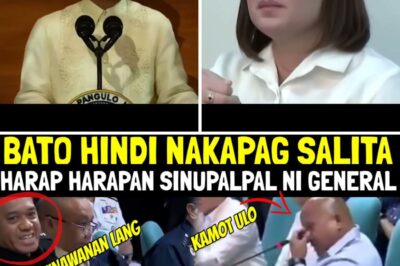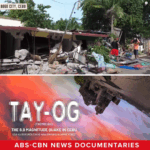MANILA, Philippines – In a stunning turn of events that has sent shockwaves across the nation, whispers of a brewing destabilization plot against the current administration have exploded into a full-blown political crisis. The controversy erupted following bombshell revelations from high-ranking officials, suggesting a coordinated effort to undermine the government, with the military now at the center of the storm.
The political landscape was thrown into chaos after Armed Forces of the Philippines (AFP) Chief of Staff, General Romeo Brawner Jr., made a startling public admission. He confirmed that there have been active attempts by certain retired military officers to recruit active-duty personnel into a movement aimed at destabilizing the country. General Brawner revealed he had personally been approached and had spoken with several officers who were being courted to withdraw their support for the President.
“There will be no coup under my watch,” General Brawner stated firmly, attempting to quell the rising panic. He stressed the unity and unwavering loyalty of the AFP to the Constitution and the chain of command. However, his reassurances have done little to calm the turbulent political waters. Instead, they have fueled intense speculation about the identities of the individuals behind this alleged plot and the true extent of their influence.
Political analysts are scrambling to dissect the situation, with theories ranging from a calculated political maneuver by opposition forces to genuine discontent within factions of the armed forces. The narrative is complex, intertwined with recent explosive allegations of massive corruption within the government. Just days ago, a congressman delivered a fiery speech, claiming a staggering ₱1.45 trillion had been systematically diverted from the national budget, creating a “tale of two Philippines”—one of immense poverty for the masses and another of extravagant wealth for the political elite.
This backdrop of corruption allegations has provided fertile ground for unrest, with some suggesting that the destabilization rumors are a deliberate tactic to distract from the investigation into the missing funds. The crisis has also engulfed the Senate, where the chairman of the Blue Ribbon Committee, the body responsible for investigating corruption, threatened to resign, sparking rumors of a leadership coup within the upper house.
As the nation holds its breath, the lines between political maneuvering, genuine dissent, and a potential power grab become increasingly blurred. Are these merely the death throes of a desperate opposition, or are they the early tremors of a political earthquake that could reshape the nation’s future? The one certainty is that the foundations of Philippine politics have been shaken to their core, and the aftershocks are far from over.
News
ISANG PAGKAKAMALI NG DOKTOR, BUHAY NG ISANG BABAE GUMUHO AT NAGHASIK NG LAGIM DAHIL SA MALING AKALA! ANG SUNOD NA NANGYARI SA KANYA AY KINAGULAT NG LAHAT!
Sa gitna ng nagyeyelong panahon ng taglamig sa Toronto, Canada noong taong 2014, isang kwento ng pag-ibig, pagkakamali, at…
An Eloquent Silence and Professional Acceptance: Julia Montes Confronts Coco Martin’s New On-Screen Pairing with Maris Racal
In the dazzling yet competitive world of Philippine entertainment, where on-screen relationships often capture the public’s intense interest, a…
Senator Bato Dela Rosa’s Coup Questions Met with General Brawner’s Unyielding Defense of Military Professionalism in Heated Senate Hearing
In the dynamic and often tempestuous political landscape of the Philippines, where public discourse can quickly escalate into intense scrutiny,…
Coco Martin Breaks Silence: The Truth Behind Andrea Brillantes’ ‘Batang Quiapo’ Exit Revealed Amidst Speculations of Network Transfer
In the notoriously vibrant and often tumultuous world of Philippine show business, change is the only constant. Yet, few transitions…
Ang Huling Kanta para sa’yo
Ang hardin ng The Manila Hotel ay isang paraiso ng mga puting bulaklak at kumikinang na ilaw. Ito ang perpektong…
Mula sa Pagiging Bayani hanggang sa Maging Kriminal: Ang Kalunos-lunos na Kuwento ng Nakamamatay na Pagkakamali ng Isang Nars na Pilipina sa UK
Sa mahirap at high-pressure na kapaligiran ng intensive care unit ng isang ospital, ang mga nars ang mga matatag na…
End of content
No more pages to load













